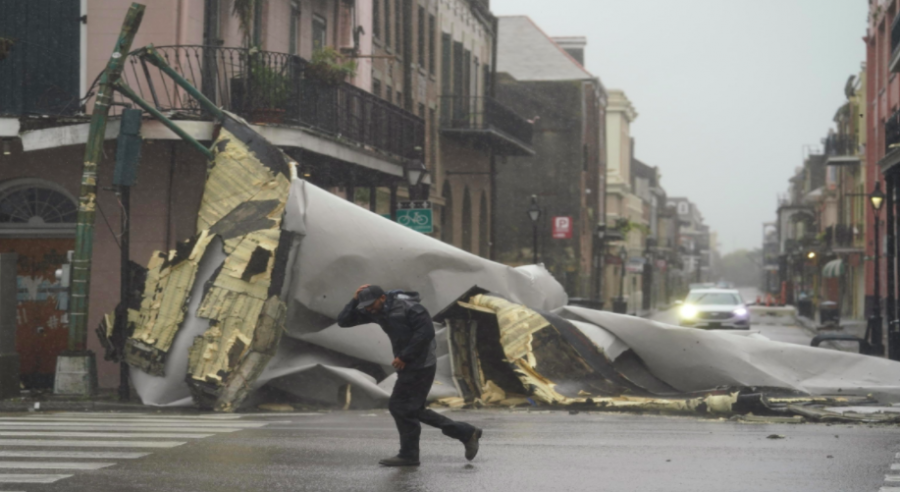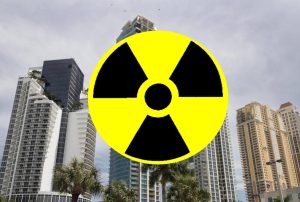Four Ways to Prepare for Hurricane Season
A man passes by a section of roof that was blown off of a building in the French Quarter by Hurricane Ida winds, Sunday, Aug. 29, 2021, in New Orleans.
September 17, 2021
Hurricane Ida, one of the most powerful storms to hit the United States since Hurricane Katrina in 1995, has devastated New Orleans and left damage all over the state of Louisiana. The hurricane struck as a powerful Category 4 storm in late August and early September, causing flooding and over $80 billion in damage. Miami also experiences these storms frequently.
On average, ten big storms hit the East Coast every hurricane season. An average of 5.9 storms become hurricanes and 2.5 become major hurricanes, Category 3 or greater, and can become very dangerous. Below are some tips families in these regions can follow to prepare for hurricanes.
Make a Plan
According to the NOAA, an evacuation plan should be put in place if a storm is approaching. In the event of a hurricane, identify a safe room to take shelter in if it’s deemed unsafe for you to ride out the storm, or identify a safe room to take shelter in if it’s deemed as safe. A good shelter room is free of pictures, tables, or really anything that could potentially injure you. Have a table in the room to hide under and anything else you would use to protect yourself in case of an emergency. It is good to be organized and plan in advance before a hurricane so you have everything you need to survive in case of a serious emergency.
Prep an Emergency Kit
Have an emergency safety kit in case you lose power. An emergency safety kit can include flashlights, a portable radio, extra batteries, non-perishable food, bottled water, cash, blankets, clothing, and toiletries. If possible, do have a generator to keep your home utilities running, such as refrigerator and lights.
“As a civilian, my priorities are to make sure I have an abundant supply of materials such as food and water, sufficient energy stored via electronics, generators, lamps, and to ensure that my home is strongly enforced to embrace hurricane damages,” senior Alex Jimenez said.
Batten Down the Hatches
Prepare your house for the storm. For example, trim large trees that could fall on your house, seriously damaging it. Put up storm shutters over all windows, and move your cars to higher ground or inside a garage in case of flooding.
Unplug All Appliances
Make sure to unplug all appliances like your fridge, alarm clock, microwave, chargers, and other devices. Lightning striking near local electric poles can cause a surge of electricity to burst through the power lines, which can cause serious damage to plugged in appliances. Another tip is to fill a bathtub with water and anything else in which you can store drinking water. Charging all electronics is also a very good idea during a hurricane.
“Turn on the generator if you have one, find flashlights, and keep your fridge closed,” senior Max Sanchez suggested.
If you take these simple steps into consideration next time you know you’re going to get hit by a hurricane, you will save more money and keep your family safe.




















